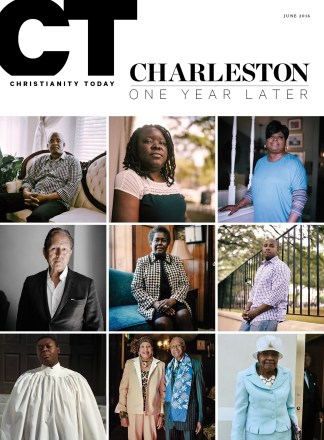God is strange. At times, he is awful.
Losing Susan: Brain Disease, the Priest's Wife, and the God Who Gives and Takes Away
Baker Pub Group/Baker Books
160 pages
$10.00
There’s no getting around these excruciating facts after reading Victor Lee Austin’s memoir, Losing Susan: Brain Disease, the Priest’s Wife, and the God Who Gives and Takes Away (Brazos).
At age 38, Susan Austin was diagnosed with a brain tumor. Due to the marvels of modern medicine, she healed. But the cancer treatments brought about the condition that ultimately ended her life—something called white-matter disease. Victor, Susan, and their two children initially felt relieved, only to discover a slow deterioration under way in Susan’s brain.
Readers will admire Victor’s fidelity to his wife and longsuffering, but his years caring for Susan were marked by second-guessing, uncertainty, and doubts. As a husband and a father, a theologian and an Episcopal priest, he limped his way through the fog of maintaining a home, teaching ethics, and leading church members through prayers his wife could no longer pray.
Though a memoir, the book is also a searching exposition of the Bible’s Wisdom Literature. For Victor, the “second best” book of the Bible is Song of Songs, with its celebration of bodily life. When Victor met Susan in college, he was enthralled by this vibrant woman who radiated energy and beauty. “In being drawn to Susan,” he writes, “I was discovering the unified physical and spiritual goodness of a person who was herself most drawn to God.”
From the beginning, words were important to Susan. She was reading before most kids her age had mastered the alphabet. In fact, the best prose in this well-written memoir comes from her hand. We encounter one of her published letters on abortion in which she brings ancient wisdom to bear on the legal and social controversies of the 1970s. (She and Victor would become foster parents to babies and toddlers.)
Victor, fittingly, gives Susan the final word by including a children’s fable that could have been penned by an Inkling. Clear and brisk were the adjectives that the priest who spoke at her graveside used to describe her writing.
The family’s two biological children were teenagers when, amid the festive rituals Susan had established for Christmas Day, she wordlessly turned away to take a nap. The “in remission” status had been pronounced months earlier. But Victor and the children sensed that “something had just slipped away from us.”
God had given—and God took away. Susan’s body slowly failed her. Months before her death, she could no longer speak. “Our human relationship with God is a dynamic of giving and receiving, of bestowal and counter-bestowal,” Victor writes. This “dynamic came close to home. Too close.”
Which is why, for Victor, the best book of the Bible is ultimately Job. Many of us begin doubting God’s goodness in the face of nightmarish loss. Sometimes we accuse him of evil. But this perspective is quite at home in Scripture. Between Job’s anguished cries, the prophets’ lamentations, and Christ’s screams at Golgotha, there is no retreating into a theological comfort zone where “God would never” allow atrocity.
Yet God will never abandon or cease to love us. And Victor knows that, just as he answered Jesus’ bodily demise with the Resurrection, God will give Susan “an illustrious body that will never grow old, never lose its hair, never hunger, never suffer cancer or chemotherapy or loss of memory or brain seizures, a body that is completely alive in God’s Holy Spirit.”
Any theology that can’t accommodate the thieving powers of death and disease explodes on the cross of the One who bore the brunt of unspeakable disaster. But as the empty tomb makes clear, even that is not enough to ungift divine love.
Andrew Byers teaches biblical studies and missional leadership at St John’s College, Durham University. He blogs at hopefulrealism.com.











